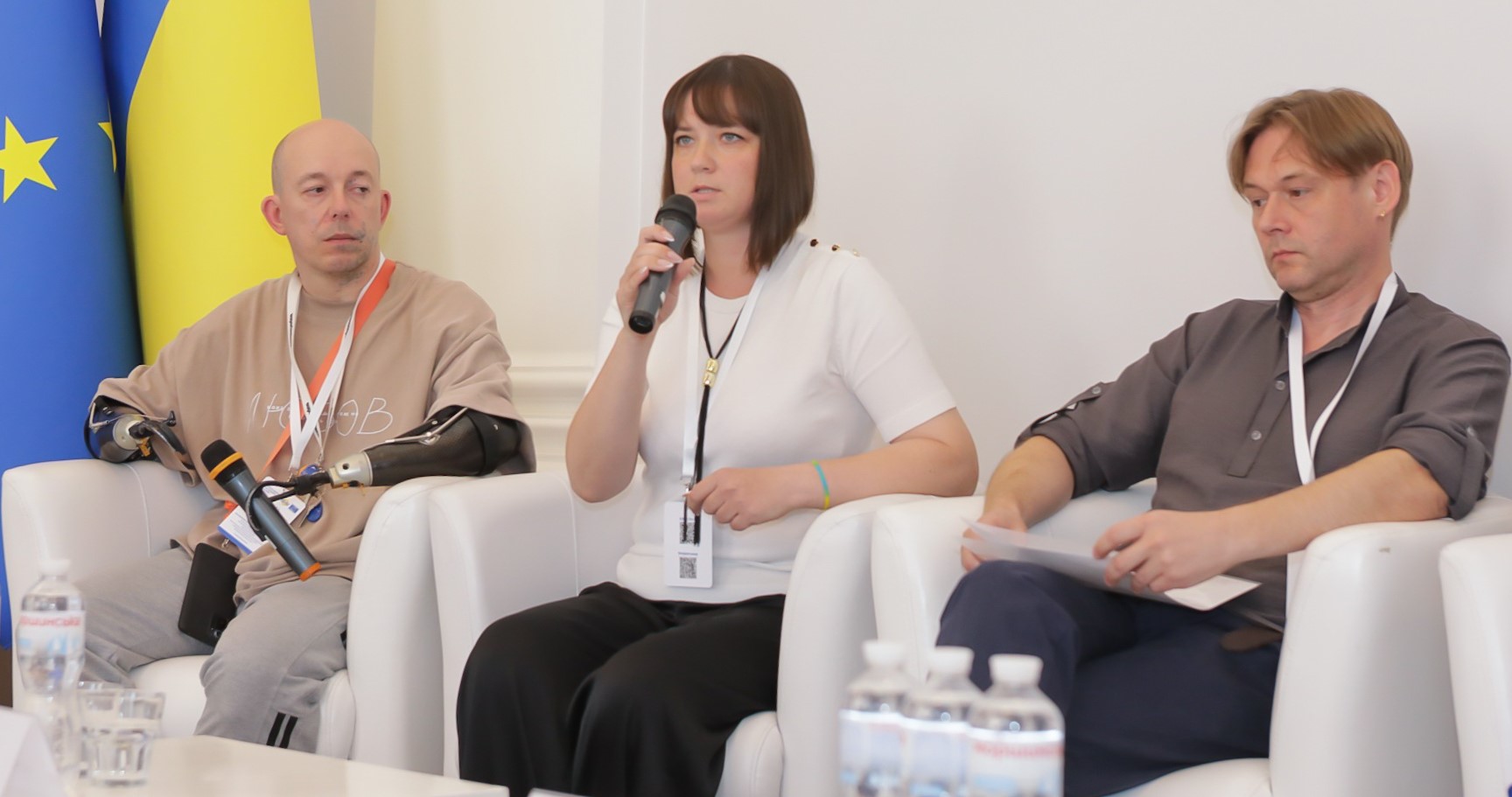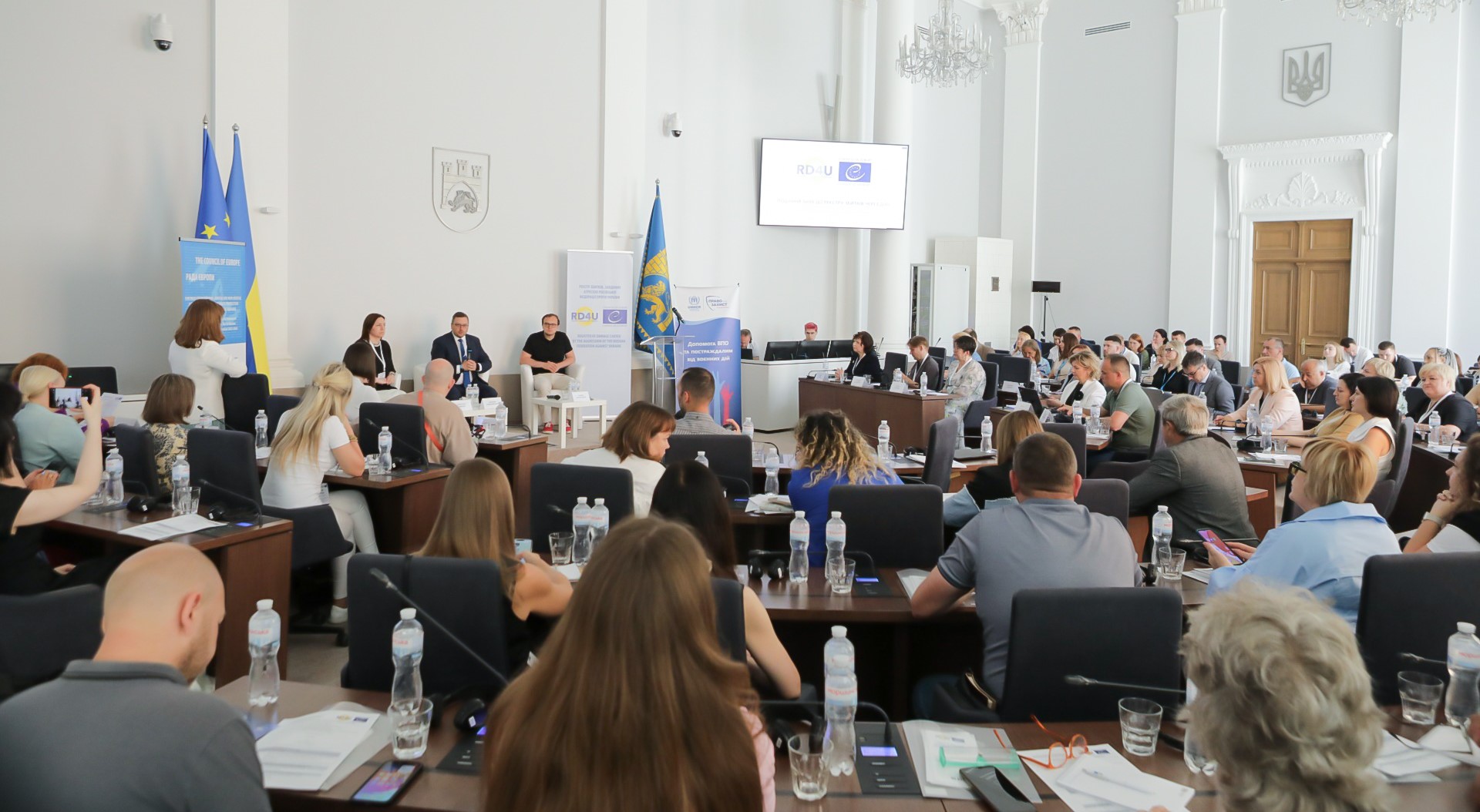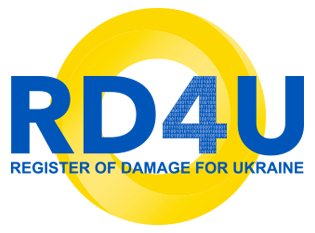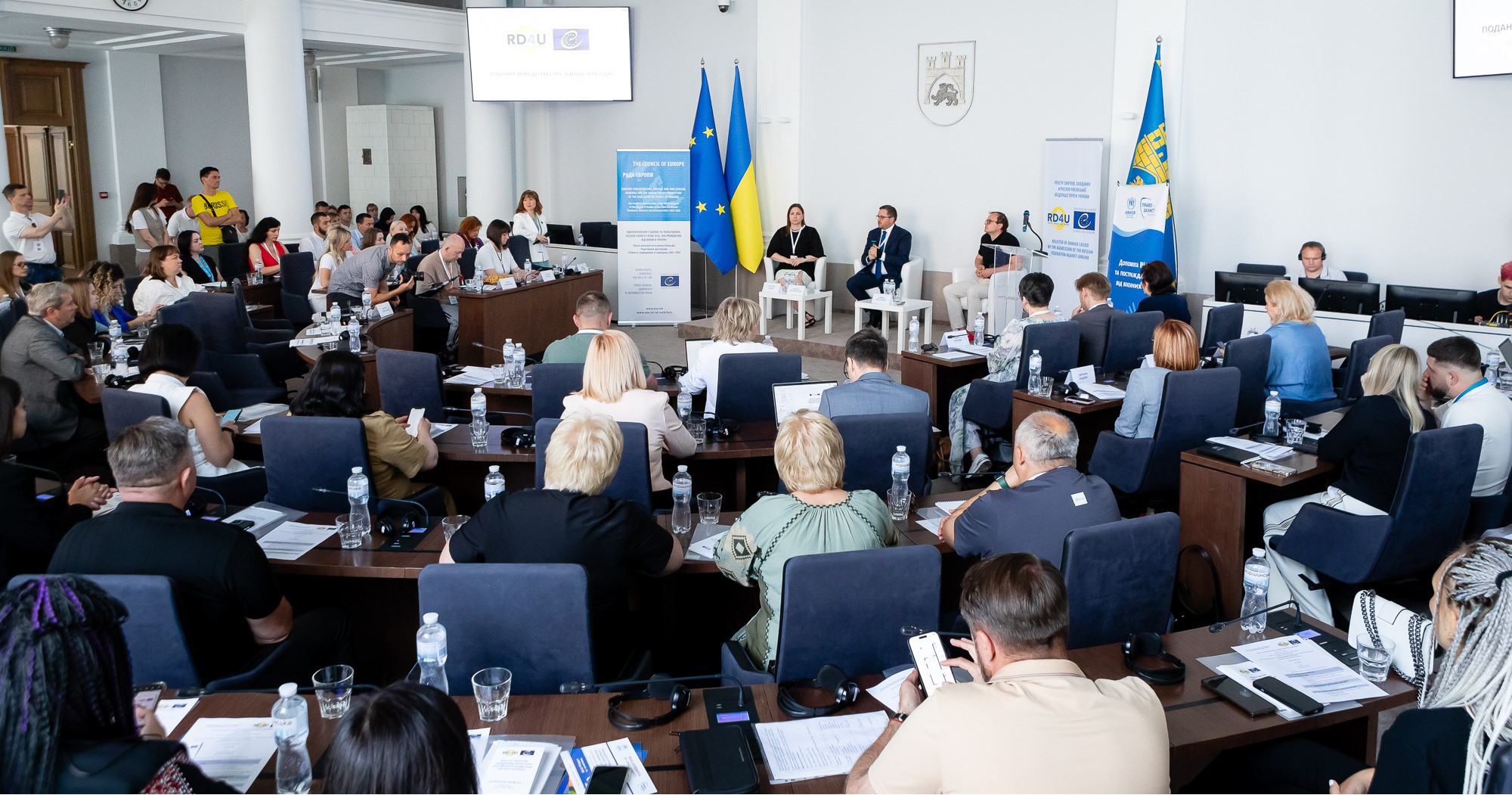On 25 June 2025, a regional event of the Register of Damage for Ukraine took place in Lviv. The event was aimed at providing practical assistance to those affected by the war. It brought together representatives of local government authorities, local self-government bodies, civil society institutions, Council of Europe partners, and individuals who have already submitted claims to the Register.
In his opening remarks, Executive Director of the Register, Markiyan Kliuchkovskyi, emphasized:
“We must reach out to those who have endured the worst, to inform and explain: the Register of Damage was created for them. So that they can respond – resist the aggressor in the way they can: by telling their story, by submitting a claim for compensation, and by rightfully and reasonably expecting it to be awarded.
We face a daunting task: to build a vast mechanism that will cover the entire country, millions of people, and hundreds of billions in damages. Even with the full support of the 44 member states, we cannot do this alone.”
Deputy Secretary General of the Council of Europe, Bjørn Berge, underlined that the Register of Damage is only the first step on the path to compensation:
“All Ukrainians who have suffered from the brutality and violence of Russia can now submit their claims to the Register. It is important to understand that these claims will not only be registered – they will be reviewed. We are now in the process of establishing the Claims Commission. I hope it will begin its work before the end of this year.”
Practical Support: Submitting Claims and Sharing Real Stories
Participants learned more about the Register’s mandate, the operation of its website, and the ability to submit claims through the Diia portal. They also heard personal stories from those who have already submitted their claims, including representatives of affected communities, veterans, and internally displaced persons.

One of the speakers during the panel “Voice of the victims and survivors of the war: experience in submitting a claim to the Register” was Yaroslav Bazylevych, who personally suffered from Russian aggression. On 4 September 2024, he lost his entire family – his wife Yevheniia and their daughters Yaryna, Dariia, and Emiliia – in a missile strike on Lviv.
Feeling unbearable mental pain and anguish, he found the strength to submit the claim to the Register and now calls on others to do the same – to preserve memory, establish truth, and move closer to justice:
“I submitted a claim to the International Register of Damage. It’s not just a formality. It’s proof that my home was destroyed. It’s a record that it was obliterated by a Russian missile. It’s a record that will remain forever and will become part of justice. I call on all Ukrainians who lost homes, businesses, property, or loved ones to take this step – to submit a claim. This is our voice, our evidence, our contribution not only to holding the aggressor accountable, but to laying the groundwork for recovery. No compensation can replace the lives of my three daughters and my wife. But I know that every Ukrainian voice in this Register is a piece of future justice.”
During the event, the Register announced the launch of a new claim category: A3.6 – Loss of Access to or Control over Immovable Property in Temporarily Occupied Territories.
Kateryna Kornienko, Coordinator of the “Melitopol. Right Here. Lviv” Assistance Hub, also emphasized the importance of this step: “Today, during the launch of the new category, my colleagues also shared this information – and had already posted it publicly. Immediately, comments started appearing: ‘When can we come to you?’, ‘Can you help us?’ – this is a powerful signal of growing trust.”

The panel discussions also addressed the role of regional administrations, grassroots initiatives, and human rights defenders in spreading information about the Register and supporting claimants.
“When we talk about the Register of Damage, we are talking about documenting losses. About what can be recorded, quantified, proven. We don’t only declare this inside Ukraine – we shout it to the world: every crime must be recorded, every perpetrator must be held accountable,” said Khrystyna Zamula, Deputy Head of the Lviv Regional Military Administration.
Andrii Moskalenko, First Deputy Mayor of Lviv, added: “The international community, our partner countries, those who make crucial decisions globally, must clearly understand the real cost of this war. Yes, the highest cost is human life. But we must record and account for all losses – systematically, honestly, and thoroughly.”
Ongoing cooperation with civil society, national authorities, and international partners remains essential for the development of the Register of Damage. It enables comprehensive documentation of all damages, losses, and harm – which is a necessary foundation for an effective compensation mechanism and an integral part of broader efforts to establish justice and ensure accountability.
The event was organised in cooperation with the Lviv Regional Military Administration, the Lviv City Council, the Council of Europe Project “Further strengthening judicial and non-judicial remedies for the human rights protection of the war-affected people in Ukraine”, and the charitable foundation “Right to Protection”.





